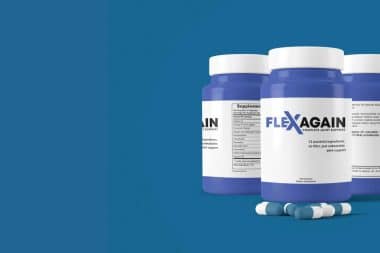Simply put, some things, such as toothpicks, are not the ideal objects you should use to clean your teeth. We at Wagga Dentist Morgan Street Dental understand this and recommend you never pound away or pick at your teeth and gums with what is basically a miniature javelin. That said, there are seven tooth-approved things to keep your teeth clean and fresh.
-
Detergent Foods
Dear reader: we were going to simply use “detergent” as a header, but with the Tide Pod challenge going around, which we never recommend (for teeth or anything else), we thought it best to choose accuracy over glibness. Consequently, the more accurate label, “detergent foods” won out over the much more eye-catching sub header, “detergent.”
Okay, detergent foods–what are they and why in the world are we recommending them to clean your teeth? Detergent foods include foods such as carrots, celery, and apples. These types of foods naturally scrape and clean your teeth.
Of course, it is only natural that hard or crisp fruits and veggies are good for your teeth, but did you know that there are some others? Popcorn, for instance, helps keep your teeth clean, and it is delicious. The obvious way they work is via scrubbing. However, they also help to reset your mouth’s pH levels to right around 7.0. At this pH level, your mouth is neither too acidic nor alkaline.
-
Natural Cleaners
Some debate surrounds natural cleaners such as baking soda. however, used in small amounts, it can help scrub your teeth without introducing a lot of chemicals or sweeteners. As a substance, it is abrasive enough to cleanse enamel without eating away at it. Additionally, it creates a pH level of 8.3, which is bad for bacteria but not destructive for your teeth.
-
Bubble Gum
When we include bubble gum in this list, we do not mean the high-sugar bubble gum of your childhood. Regarding that type of gum, our advice is clear: stay away from it. However, some types of gum use a sweetener called xylitol. It exists in fruits, vegetables, and corncobs (do not eat corn cobs), so it is a taste you already know. It helps clean your teeth in two important ways.
First, it increases the acidity of your mouth to a pH level of 6.5, which is terrible for bacteria but not terrible for teeth.
Second, it is a 5-carbon chain. Bacteria require a 6-carbon chain to reproduce. Consequently, xylitol kills bacteria and keeps the ones that remain from reproducing. The end result is cleaner teeth.
Wait–we understand what you are thinking. We listed bubble gum as a teeth cleaner. That is correct, there are a few bubble gum brands that use xylitol as a sweetener. They result in the purest bubbles in the world.
-
Waterpik
Waterpik is an amazing device. It uses a decently high-force stream of water to clean away at your teeth and gums. Although it is primarily designed to penetrate beneath the gumline and remove food particles floss is unable to reach, it also spray washes your teeth, cleaning areas you miss because you are brushing so fast in an attempt to get back to your popcorn and bubble gum. Our advice: slow down. Those snacks are not going anywhere.
In fact, your common ally–the toothbrush–leaves behind nearly half of the plaque that was there to begin with. When you use high-powered water to clean your teeth, slowly, as you push the thoughts of popcorn out of your mind, you are able to remove much more of that remaining plaque.
Additionally, the feeling you have after spray washing your teeth is smooth and amazing. It is so amazing that, perhaps, you will not want to dirty your mouth with a bunch of snacks.
-
Soft Toothbrush
Okay, perhaps we maligned the toothbrush a bit in the previous entry. The fact is that a soft-bristled toothbrush is one of the best tools you have for your teeth. A soft-bristled toothbrush will remove plaque and not harm your gums or your teeth’s enamel. Additionally, the soft bristles can get between the teeth easier than a stiff-bristle brush.
Wait, what–you already knew that? Well, to compensate for the disappointment, our next entry must be extra amazing.
-
Rinse
Yes, we know that by “amazing,” you thought we were going to list BBQ or hot dogs with loads of mustard as being able to clean your teeth. Yeah, well, you can forget about that.
Rinsing, however, is pretty amazing in that it is so easy. More specifically, you should rinse after eating certain foods, such as citrus fruit. Citrus fruit can leave your mouth in a highly acidic state. We understand that most people do not go around eating lemons, which are highly acidic and very hard on teeth, but you do put lemon on your fish. Additionally, you probably know what an orange is. You also probably do with oranges what everyone else does with them–eat them.
When you are done eating that orange–rinse your mouth, vigorously. Doing so will get rid of all those tiny bits of orange in between your teeth, and it will help return the pH level in your mouth to a more neutral level.
As a post-eating ritual, rinsing is always good advice.
-
Tea
Tea is so good for your teeth, you can actually stop brushing forever. Wait–who wrote that? That previous claim is incorrect. Well, it is largely incorrect. You must brush. However, tea contains flavonoids, which help prevent bacteria from becoming glued to your teeth. Additionally, tea contains fluoride, which helps strengthen your teeth.
-
Bonus Item: gobs o’ nuts
Yes, we know–this blog article was supposed to be about the top seven ways to clean your teeth. However, “soft-bristled toothbrush” was such a lackluster entry, we had to locate an absolutely amazing entry to round out this tooth-cleansing list.
Rest assured, the following entry is (truly) amazing.
Gobs o’ nuts is the (not-so) technical term for almonds, cashews, and Brazil nuts. Of course, this trio of nuts help scrub your teeth, and scrubbing helps clean teeth. However, these nuts also help obliterate what is known as gram-positive bacteria.
Gram-positive bacteria is a destructive jack-of-all-trades. In addition to causing certain types of pneumonia as well as acne, tuberculosis, and leprosy(!), it loves any chance it gets to rot your teeth.
These three types of nuts, however, contain anacardic acids. Anacardic acid is so powerful, it can kill gram-positive bacteria at levels of only 1 part per 2,000,000.
Additionally, anacardic acid only takes 15 minutes to take effect.
In consideration of all the brushing and power-washing and rinsing we have advised you to do, we must advise another technique when it comes to eating nuts.
Instead of snacking on nuts like a crazed, nut-loving monkey, mix an appropriate portion of almonds, cashews, or Brazil nuts into your lunch or dinner. Eat the nuts in a civilized fashion between each few bites. Pace your meal to last 20 or so minutes. As you (slowly) finish your food, the anacardic acid will permeate your mouth, and by the time you are done, it will be wreaking havoc on gram-positive bacteria.
Of course, after you are done eating, rinse, brush, and Waterpik your teeth. Then relax because you have a clean mouth, and you have postponed leprosy for (at least) another day or so.








Reply